Biobanking and Digital Pathology in the Context of the UN Sustainable Development Goals
Science Summit at UNGA
Session 306
The integration of biobanking and digital pathology represents a transformative advancement in medical research and healthcare delivery, aligning closely with several United Nations Sustainable Development Goals (UN SDGs). This session explores the critical role of biobanking and digital pathology in enhancing global health outcomes, reducing inequalities, and fostering innovation in medical sciences. By systematically collecting, storing, and analyzing biological samples and associated data, biobanking facilitates groundbreaking research in understanding disease mechanisms, leading to more effective treatments and preventive strategies. Digital pathology, through advanced imaging and artificial intelligence, revolutionizes diagnostic accuracy and efficiency, promoting accessible and high-quality healthcare.
Key discussions will highlight how these technologies support SDG 3 (Good Health and Well-Being) by advancing precision medicine, improving disease surveillance, and enabling robust public health responses. The session will also address their impact on SDG 9 (Industry, Innovation, and Infrastructure), showcasing how biobanking and digital pathology drive technological innovation and support the development of resilient healthcare infrastructures. Furthermore, we will explore contributions to SDG 10 (Reduced Inequalities), emphasizing equitable access to cutting-edge medical advancements and personalized care across diverse populations.
By bridging scientific research with clinical practice, biobanking and digital pathology embody a holistic approach to achieving the UN SDGs, fostering sustainable and inclusive development in global health. This session aims to inspire collaborative efforts among researchers, healthcare professionals, policymakers, and stakeholders, driving forward a shared vision of a healthier, more equitable world.
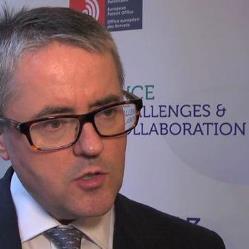
Declan Kirrane is the Founder and Managing Director of ISC Intelligence in Science, the chairman and managing director of the science Summit at the United Nations General assembly, and co-founder of Medicines for Future (MAF). He has over 25 years of experience as a global senior adviser to governments and industry on science policy and related regulation.
With Financial Times, he was the launch editor of CORDIS, the European Commission’s research information Service. He was Editor of the Commission’s Innovation and Technology Transfer Newsletter and CORDIS focus. His expertise covers ICT, Health, Defence, Space, Science Policy, GPRD legislation, EU R&D and Innovation policies, programmes and funding instruments. He has worked extensively on science policy evaluation methodologies and technology options for policy, and decision-makers use investment in science for broader economic development and competitiveness. With the Office of Science in the US Department of energy, he Launched the Ford Foundation Bellagio process on science policy evaluation methodologies.
He is closely involved in EU-Africa science and innovation relations and investments, particularly the EU’s investment strategy for Africa. The was closely involved in the South African government’s bid to host the Square Kilometre Array Radio Telescope, the SKA, South Africa and its partner countries succeeded in securing the rights to build the SKA in South Africa. He manages the Africa-Europe Science and Innovation Platform, AERAP.
Declan has been actively promoting a more significant role for science within the context of the United Nations General Assembly since 2010. This has culminated in the annual Science Summit within the context of the UN General Assembly. The current edition takes place from 10-27 September 2024 https://sciencesummitunga.com/.
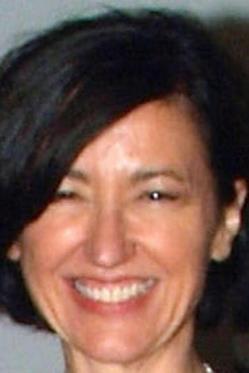
Rita Lawlor is a Computer Science graduate of Trinity College Dublin with a doctorate in Oncological Pathology from the University of Verona where she is co-founder of the ARC-Net (www.arc-net.it) applied cancer research centre where is director of the ARC-Net biobank and coordinates research activities. She is co-PI for the European funded project on “Integrative Analysis of Gene Functions in Cellular and Animal Models of Pancreatic Cancer” (http://www.cam-pac.eu/) and “Biomarkers of tumour recurrence in pancreatic cancer” (Bio-Pac) and coordinates the national Italian Cancer Research Association funded project “Clinically applicable biomarkers to early diagnosis, patient risk stratification and therapeutic response in pancreas cancer”. She is part of the working group to define the standards for Research Biobanks of the Veneto Regional Government of Italy and is part of the coordinating group to create a regional biobank network.
She is a member of the steering committee of BC-NET (Biobank Cohort Network of Low Middle Income Countries) of IARC (International Association for Research on Cancer) and is a member of the IT/LIMS working group. She is a former director of ISBER, International Society for Biological and Environmental Repositories (www.isber.org) and is past president of ESBB, the European, Middle Eastern and African Society for Biopreservation and Biobanking (www.esbb.org). She is IAPP (International Association of Privacy Professionals) CIPP/E and CIPM certified for European data protection. Her current research interests are in molecular diagnostic markers and therapeutic targets and the role of cancer heterogeneity and molecular characterization of samples in the application of individualized medicine.
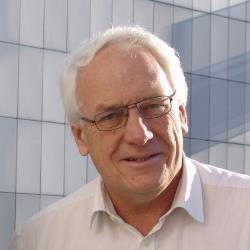
Kurt Zatloukal, M.D. is a professor of pathology at the Medical University of Graz, Austria and is head of the Diagnostic and Research Center for Molecular Biomedicine. His research focuses on the molecular pathology of diseases as well as biobanking and related technologies. He coordinated the preparatory phase of the European biobanking and biomolecular research infrastructure (BBMRI) within the 7th EU framework programme and is heading the Austrian national node BBMRI.at. Furthermore, he led in the FP7-funded large integrated project SPIDIA the development of new European standards and norms for the pre-analytical processing of tissue samples for molecular testing. He coordinates the EU project Instand-NGS4P, a pre-commercial procurement for the development of innovative NGS workflows for personalised medicine.
He is a member of the scientific board for genetic testing and human gene therapy at the Austrian Ministry of Health and a member of the Austrian Standards Institute. He was a member of the OECD task force on biological resource centres and the Roadmap Working Group of the European Strategy Forum on Research Infrastructures.
Moreover, he contributed to the OECD best practice guidelines for biological resource centres, the regulations for genetic testing of the Austrian Gene Technology Law, and was a member of the Bioethics Commission at the Austrian Federal Chancellery. He has published 387 scientific papers and was co-inventor of 25 patent applications.
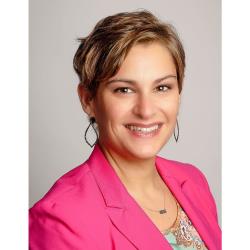
Pamela Ruiz has over 20 years of comprehensive global experience in leadership, strategy, business development and global expansion. Pamela’s focus and passion is to create sustainable infrastructure and ecosystems to ensure equity, access, and agency. An avid learner, listener and builder, she strives for collaborative impact and to do the most good by connecting people and ideas, and ensuring action on even the most ambitious of endeavors.
Ms. Ruiz has a degree in Art History from James Madison University, a graduate certificate in Organizational Development from Penn State University and holds the Certified Association Executive (CAE) credential from the American Society of Association Executives (ASAE). Pamela is fluent in Italian and basic Spanish and resides in the metro Washington DC area with her husband and three sons
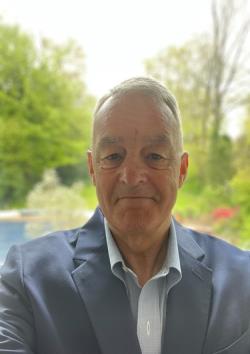
Bleddyn is a vastly experienced commercial and international healthcare lawyer with over 30 years advising on outsourcings, privatisations, complex contracting and projects. He is Deputy Chair of the European Connected Health Alliance and a Chair of the Digital Health Society (DHS)
He has unique experience for a private sector lawyer having spent almost four years seconded to the Commercial Directorate of the UK Department of Health.
Bleddyn has advised on healthcare regulations, commissioning and contracting for healthcare services, partnerships, alliances and collaborations in the health and care sectors. He has a wide range of experience in healthcare including Chairing the Digital Working Group of All Policies for a Healthy Europe, the Industry Advisory Board of Digital Health. London, being a member of the EC eHealth Stakeholders Group and 5 years on the Commercial Board of Guy’s and St Thomas’ Hospital in London.
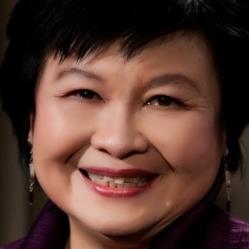
Mei Lin co-founded the People-centred Internet with Vint
Cerf in 2015, and was the business partner of Douglas
Engelbart from 2001 to 2004: Their labs were the first 2 nodes
on the Arpanet. A pioneer in customer relationship
management, she was on the two-person Skunkworks team
that designed and coded the first CRM system, OASIS, at
Oracle.
She worked at Intel, then at Oracle, heading finance for Tom Siebel, then Marc Benioff. From
2009-2013 Mei Lin worked with the US Department of Defense’s initiative/think tank looking at
the future of health. She is a thought leader on the use of networked improvement
communities in health.
Her first job was writing assembler code at Shell Australia. She studied finance at MIT under
future Nobel winners Robert Merton and Franco Modigliani, and she also studied under Fisher
Black, known for the Black Scholes Options Pricing Model.
Mei Lin is a member of the World Economic Forum’s Global Future Council on Digital Economy
and Society. She serves on the Steering Committee for the Internet for All initiative of the
World Economic Forum. She serves as vice-chair for internet inclusion within the IEEE Internet
Initiative
-
 C2. Information and communication infrastructure
C2. Information and communication infrastructure
-
 C7. ICT applications: benefits in all aspects of life — E-health
C7. ICT applications: benefits in all aspects of life — E-health
-
 C7. ICT applications: benefits in all aspects of life — E-science
C7. ICT applications: benefits in all aspects of life — E-science
-
 C11. International and regional cooperation
C11. International and regional cooperation
-
 Goal 3: Ensure healthy lives and promote well-being for all
Goal 3: Ensure healthy lives and promote well-being for all
-
 Goal 9: Build resilient infrastructure, promote sustainable industrialization and foster innovation
Goal 9: Build resilient infrastructure, promote sustainable industrialization and foster innovation
-
 Goal 10: Reduce inequality within and among countries
Goal 10: Reduce inequality within and among countries
-
 Goal 17: Revitalize the global partnership for sustainable development
Goal 17: Revitalize the global partnership for sustainable development